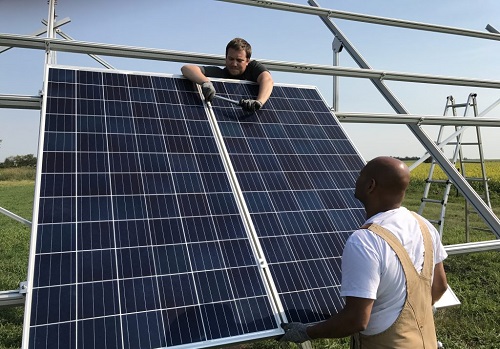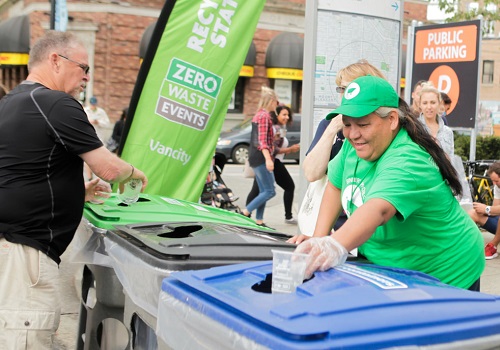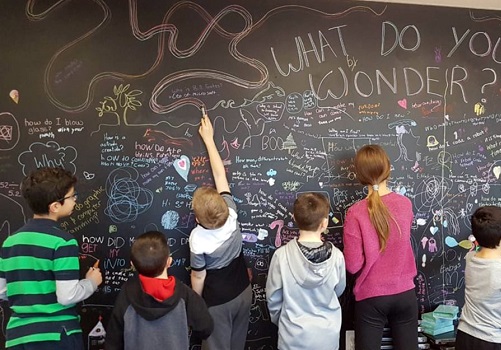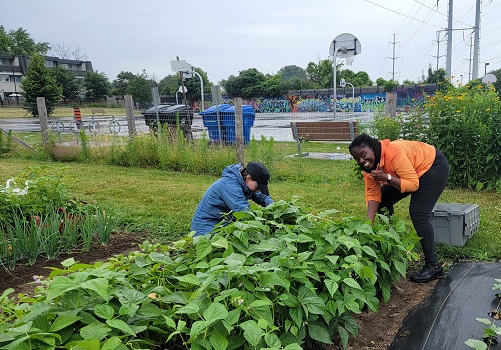[For this article, SEE Change was delighted to collaborate with the students of the Social Innovation class, taught by Catherine Pearl, at Mount Royal University’s Bissett School of Business.]
In this year’s Social Innovation class we had the opportunity to identify different social enterprises in Canada that are making a change in society. The goal was to acknowledge the social enterprises that continue to make an impact on a larger scale and represent a wide range of what Canada has to offer.
From a broad selection chosen by the class, we brought the list down to five social enterprises from five provinces, targeting five different and complex social problems. We based these top five on the following criteria: The social enterprise must be addressing a pressing complex problem and focusing on a systematically marginalized population.
It must also directly address two or more SDGs with its mission. In fact, every social enterprise we chose contributes directly to SDG 8 – Decent Work and Economic Growth – and SDG 10 – Reduced Inequalities – in employing and destigmatizing systematically marginalized groups of people. The enterprise must be making an impact, whether that’s assessed financially, through testimonials, or scale. Last, but arguably the most highly-regarded criterion in our decision-making, the enterprise had to have innovative appeal. It had to be unique and exciting to us students, filling us with hope for the future.
Note that these are not in any particular order; coming up with the top five was challenging enough when there are so many fabulous organizations working for change in our country!
1. Newo
Newo gets us excited because of its decolonial practices, committed to both truth and reconciliation. They use Cree terminology referring to respectful relationship to the land, feature the medicine wheel and four elements in their logo, and have been in continual contact with Elders and other Indigenous communities throughout the founding and continued operations of their organization. They employ people who face barriers, such as youth and members of Indigenous communities, to assess and install solar technology as fits the customer’s needs, as well as to conduct energy audits. They empower the communities they work with and the people whom they employ, through education about solar panels and the energy industry as well as reconciliation topics and Indigenous knowledge, fully including stakeholders to genuinely build a better future for all.
It is clear Newo is making change through its many initiatives and projects. The company features stories on some of their projects and employees, and disseminates knowledge through live online presentations to the community, rather than dense quantitative-heavy reports. Importantly, Newo is humble (and honest) about their impact as a social enterprise. They recognize that renewable energy is important but is only part of the solution in reducing climate change’s effects. The climate crisis is clearly a pressing complex problem, as is the shift to cleaner energy, and we commend Newo’s efforts.
Newo has the most obvious impact on SDG 7 – Affordable and Clean Energy – in their solar projects. Newo also impacts SDG 9 – Industry, Innovation and Infrastructure – in their capacity building educational approach to inclusive job training.
2. Binners’ Project
Binners’ Project (a project on MakeWay’s Shared Platform) intrigued us because the idea for the social enterprise is scaling something that already exists but is heavily stigmatized: collecting bottles. This B.C.-based organization recognizes the impact bottle collectors, or Binners, have on cleaning up the environment and diverting waste from the landfill. And they hail their way of life as an entrepreneurial act of resistance and survival, compensating them economically for their work.
Binners are hired by companies and residential services to sort waste. They are, of course, provided with further training to ensure efforts are successful. Binners are also hired to educate the public on waste sorting at events hosted by other organizers. Testimonials, statistics, their strategic plan, reports, and news articles demonstrate the impact Binners’ Project has had.
Binners’ Project contributes to SDG 12 – Responsible Consumption and Production – diverting recyclable materials from landfills. SDG 1 – No Poverty – is also represented by employing often low-income or impoverished individuals. In today’s world defined by overproduction and overconsumption, there is always a need for waste diversion. While this initiative doesn’t try to solve the root problem, its contribution in reducing its impacts on society and the environment must be recognized and celebrated.
3. Pinnguaq
Nunavut-based Pinnguaq – Inuktitut for “Play” – focuses on STEAM capacity development in Indigenous and other rural communities and underserved populations. Their goal is to build skills and create opportunities for future employment serving youth, adults, educators, and small businesses. They have won a number of awards and prizes for their work, including Best Social Enterprise Canada Wide at the 2017 Startup Canada Awards.
At least half of the people on their board are female, per Canada’s 50/30 diverse workspace guidelines, including BIPOC and 2SLGBTQIA+ representation. Pinnguaq offers digital learning opportunities, including games and courses available in English and Inuit language as well as in-person creative Makerspaces encouraging innovation and cultural connection. They have artists-in-residence, workshops and camp opportunities and other events with a focus on both physical and digital arts, computing, cooking and sewing. They use a cost-recovery model and subsidize memberships to ensure their programs are affordable and accessible.
Equal access to tech-related educational and employment opportunities is a complex issue, especially for remote Indigenous communities. Pinnguaq targets SDG 4: Quality Education in its capacity-building structure and Goal 9 – Industry, Innovation and Infrastructure – in their STEAM-focused topics.
4. FoodShare
The food justice organization FoodShare is an unique social enterprise that is paving the way to dismantle food insecurity in Toronto communities. The class felt a strong connection to FoodShare, as it was the only food justice organization selected to be on our social enterprise list. From its branding, mission, ties within the community and tangible results, it was difficult for us not to be amazed by all the hard work FoodShare has done over the years. Its tagline really does say it all: Eat it, grow it, share it.
Our class wanted to showcase the importance of advocating for the right to food, but also wanted to highlight the limitations that come with receiving fresh produce. FoodShare is specifically designed to work with communities that are most affected by poverty. This includes Indigenous and black communities, people of colour, individuals with disabilities and low-income citizens.
As a class we acknowledge that marginalized groups inherently have to deal with food insecurity due to the systemic barriers that limit these individuals from accessing quality food. However, we also understood the restrictions that come with accessing Grade A fresh produce in general. This is where FoodShare hit the nail on the head for us. FoodShare is not only bridging the gap of food insecurity, it’s providing Grade A fresh produce to household and wholesale customers across Toronto. FoodShare continues to grow and is on its way to becoming a leader in dismantling food insecurity in Canada.
5 Green Shield Canada
Green Shield Canada is well-known as an industry leader for its trusted and reliable health benefits. Canadians of all races, gender, ethnicity and status can take better care of themselves and their families. As much as we all love health benefits, this was not the reason that Green Shield Canada was selected. As a class studying social innovation, we were drawn to the social issues that Green Shield is tackling.
We were most especially impressed by Green Shields’ three pillar social impact strategy, which focused on investing in the community, being a good corporate citizen, and ultimately driving positive change. Each of these pillars resonated with the class because we felt connected to them. Everyone has the right to live their healthiest life possible and Green Shield fully commits to that through its expertise, time, and money.
A focus on mental health was another reason that Green Shield was selected by the class. As students, many of us have experienced the negative effects of mental health and understand the importance of prioritizing it. Green Shield is working to bridge the gap in mental health, which many Canadians already struggle to access. The continued effort and progress that Green Shield has made in mental health awareness, research, and its initiatives is outstanding.
Green Shield continues to pave the path in its industry because of its primary focus on its social impact. What resonated most with our class is that Green Shields’ focus on each and every Canadian. Health is wealth and Green Shield continues to prove this with its work.
Nadeeka Forster and Emma Berg are students of Catherine Pearl’s Social Innovation class at Mount Royal University’s Bissett School of Business




